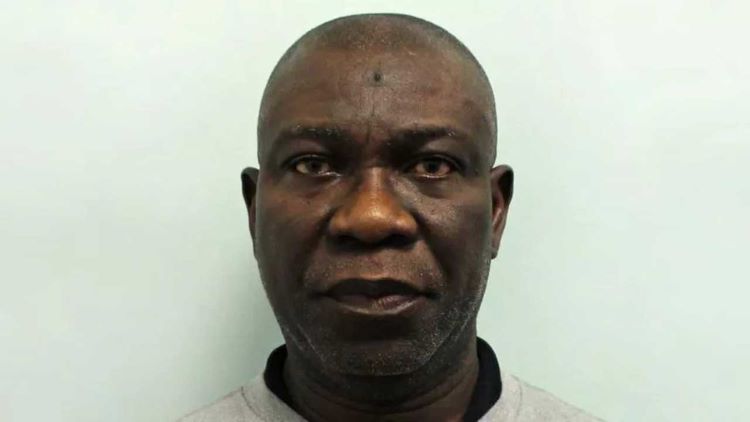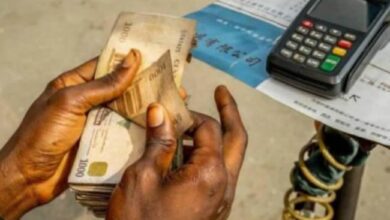Ekweremadu’s fall: A test of Nigeria’s diplomatic dexterity?

By Muhyideen Jimoh
In what some analysts have described as a “`fall from grace to grass”, former Deputy Senate President of Nigeria, Ike Ekweremadu was on May 5, sentenced to nine years and eight months in jail after a United Kingdom (UK) court found him, his wife, and his doctor culpable in a case of organ trafficking.
The Old Bailey, London’s Central Criminal Court also sentenced his wife, Beatrice, to four years six months in prison while the medical doctor Dr Obinna Obeta, who acted as a ‘middleman’ in the plot was sentenced to 10 years and his medical licence suspended.
The News Agency of Nigeria (NAN) reports that the Ekweremadus were convicted of trafficking a street trader from Lagos to Britain to illegally harvest his kidney for a transplant on their sick daughter, thus violating British laws on kidney donation and transplant
The conviction came on the heels of pleas by the Nigerian Senate, the Federal House of Representatives, the ECOWAS Parliament, government officials, and notable Nigerians, including former President Olusegun Obasanjo who had written to the court to tamper justice with mercy.
The Nigerian Senate had urged the court for clemency in delivering judgment against the Ekweremadus as first offenders and considering the former senator’s contributions to humanity.
“Distinguished Senator Ike Ekweremadu served for 12 years as Deputy Senate President and he put in so much effort to the development of the Parliament across Africa, and in the world.
“He was not found wanting and so what has happened is very unfortunate.
“I have written a letter to the British judicial authorities about three weeks ago on behalf of the Senate seeking Clemency, given the history of Senator Ekweremadu.
“We are now using this particular intervention to seek clemency in the sentencing.
“The conviction has been done, but we are seeking clemency because this is the first time, our colleague, a patriot, a leader, a great leader, a very peaceful man is getting involved in this kind of thing.
“Had we all known that this would be the case, certainly we would not have gone into that kind of situation because we are law-abiding citizens and we respect our country and its laws and laws of other countries,” Ahmad Lawan, President of the Senate said.
The Federal House of Representatives had also written a similar letter to the court for lenience.
A member of the House, Mr Toby Okechukwu had moved a motion for clemency on the floor of the parliament based on the long-standing history and cordial ties between Nigeria and the United Kingdom.
The House highlighted Ekweremadu’s contributions to the Commonwealth of Nations and his innocent intention to save the life of his sick daughter, Sonia, while calling for back channels for diplomatic interventions.
Obasanjo in his letter pleaded for mercy and profiled Ekweremadu with a sense of responsibility, stressing that though he recognised the act as illegitimate, the UK court should be magnanimous in mercy.
“Ekweremadu’s conferment with the coveted national honour of Commander of the Federal Republic (CFR) is further testimony to his selfless service to our country, Nigeria.
“Mr Chief Clerk, I am very much aware of the current travails and conviction of Ike Ekweremadu and his wife in the United Kingdom resulting from their being charged with conspiring to arrange the travel of a 21-year-old from Nigeria to the UK in order to harvest organs for their daughter.
“I do realise the implications of their action and I dare say, it is unpleasant and condemnable and cannot be tolerated in any sane or civilised society.
“However, it is my fervent desire for very warm relations between the United Kingdom and Federal Republic of Nigeria; for his position as one of the distinguished senators in the Nigerian Parliament, and also for the sake of their daughter in question whose current health condition is in danger and requires urgent medical attention, you will use your good offices to intervene and appeal to the court and the government of the United Kingdom to be magnanimous enough to temper justice with mercy and let punishment that may have to come to take their good character and parental instinct and care into consideration,’’ the letter read in part.
In spite of all the pleas for clemency from various quarters including diplomatic contacts, the Court gave what many have described as a harsh sentence. Is this then a test of Nigeria’s diplomatic dexterity?
Constitutional Lawyer, Kayode Ajulo while reacting to the sentence, urged the Federal Government to explore diplomatic means to get pardon for the senator.
He said he had written to King Charles III, pleading for a Prerogative of Mercy for the Ekweremadus.
“Your Majesty, though invigorated by your coronation, I witnessed the same with mixed emotions.
“Ekweremadu and his wife have been convicted and sentenced accordingly and I plead that you graciously and mercifully invoke the Royal Prerogative of Mercy in favour of the couple,” he said.
Mr Frank Tietie, Human Rights lawyer described the judgement as harsh, insisting that more diplomatic channels could have been explored by the Nigerian government to get a shorter sentence for the Ekweremadus.
Lawyers and analysts like Ajulo and Tietie are of the opinion that while not condoning crime in any form, the Federal Government’s citizen diplomacy policy thrust should be re-activated regardless of the status of Nigerians across the world.
The citizen diplomacy policy places priority on the protection of the interest of Nigerian citizens both at home and abroad.
It also seeks to protect the rights, dignity, and privileges of Nigerian citizens in their countries of residence abroad.
Experts say the policy implies that individual citizens are not just the centre-piece of state policies but also have the right and even the responsibility to help realise the country’s national interests through their interactions to complement official diplomatic activity.
News Agency of Nigeria (NAN)












